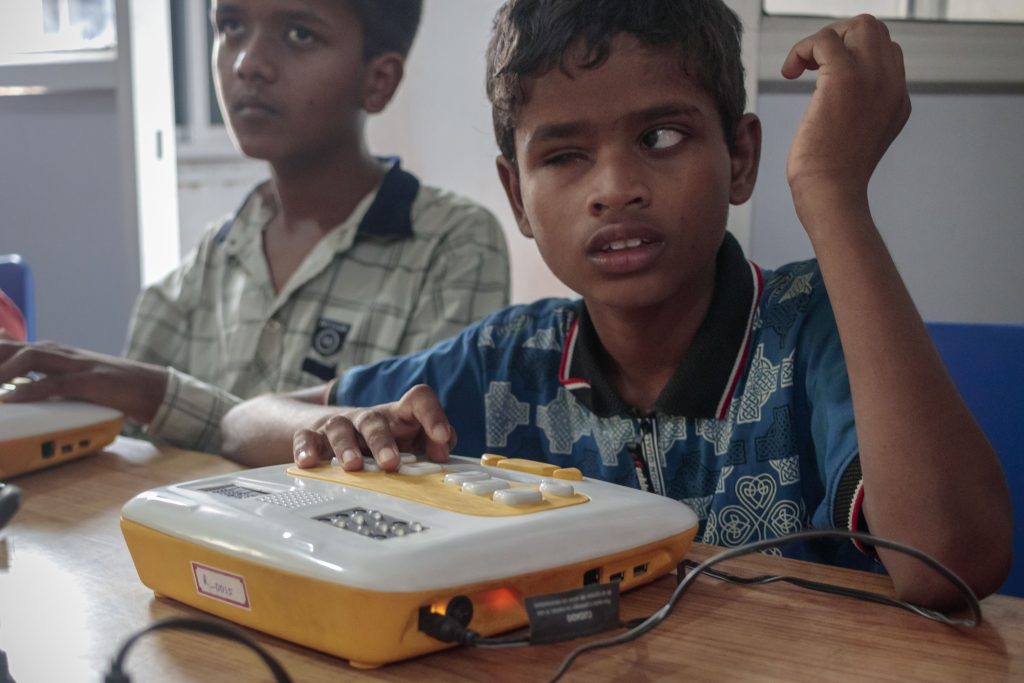
 Sanskriti Dawle, Aman Srivastava, Dilip Ramesh and Saif Shaikh are Co-Founders of The Thinkerbell Labs, a tech-driven startup that aims to solve pressing social problems using cutting-edge technologies.
Sanskriti Dawle, Aman Srivastava, Dilip Ramesh and Saif Shaikh are Co-Founders of The Thinkerbell Labs, a tech-driven startup that aims to solve pressing social problems using cutting-edge technologies.
In the vast expanse of India’s educational landscape, a challenge often overlooked is the journey of individuals with visual impairments. There are over 10 crore people with moderate to severe visual impairment or blindness, of which 1.6 crores are children in India, yet the availability of special educators remains inadequate.
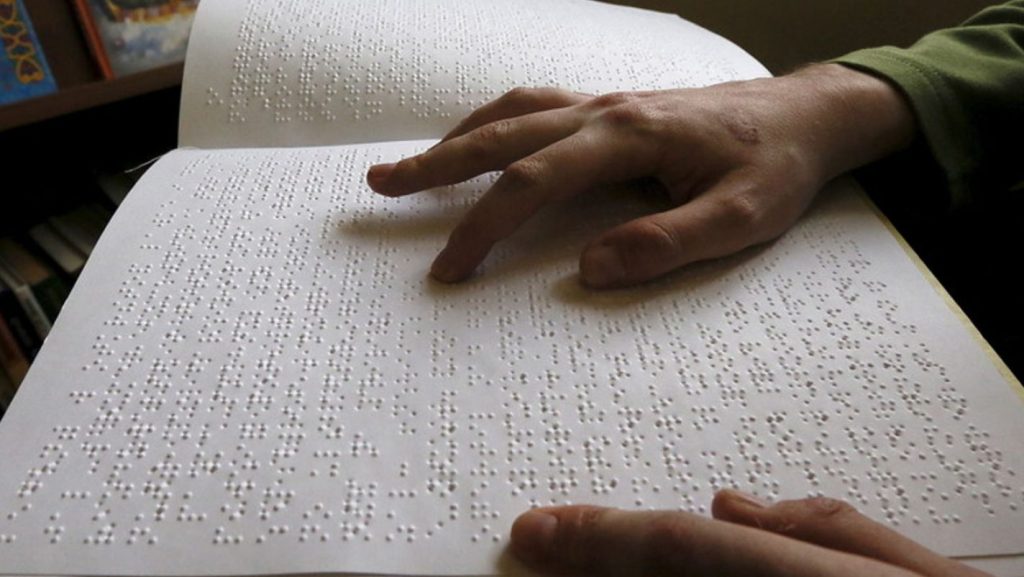 Traditional methods of teaching Braille necessitate continuous handholding from a specialised educator for individuals with special needs. However, there is currently a shortage of qualified teachers for the visually impaired (QTVIs) in India, leading to an insufficient supply to meet the demand for Braille literacy. The literacy rate in Braille stands at a mere 1 per cent and the global average of just 10 per cent. Furthermore, the lack of modern technology in Braille education exacerbates the problem. Despite advancements in the wider education system, Braille’s teaching methods remain outdated and non-scalable. This technological gap hinders the effectiveness and reach of Braille literacy programmes, leaving many students with visual impairments without the necessary skills for independence and academic success.
Traditional methods of teaching Braille necessitate continuous handholding from a specialised educator for individuals with special needs. However, there is currently a shortage of qualified teachers for the visually impaired (QTVIs) in India, leading to an insufficient supply to meet the demand for Braille literacy. The literacy rate in Braille stands at a mere 1 per cent and the global average of just 10 per cent. Furthermore, the lack of modern technology in Braille education exacerbates the problem. Despite advancements in the wider education system, Braille’s teaching methods remain outdated and non-scalable. This technological gap hinders the effectiveness and reach of Braille literacy programmes, leaving many students with visual impairments without the necessary skills for independence and academic success.
To better understand Braille and improve our product development, we visited Hyderabad and learned Braille ourselves. Starting with an initial prototype that played the alphabet song, we worked towards bridging this gap in Braille literacy and making education accessible and inclusive for all. Over two years of dedicated effort, we refined the concept and did extensive field research and lab prototyping, ultimately making Annie the world’s first remote-enabled and self-learning Braille literacy device.
Let us tell you how Thinkerbell Labs came about. We are four engineers from BITS Pilani Goa Campus who came together to work on a project. During this project, we identified the pressing need for modern Braille literacy solutions and began working on an innovation in Braille literacy to address this problem. Sighted students had access to modern technology, while children with visual impairments were still struggling to write the alphabet using ancient methods of Braille learning.
To better understand Braille and improve our product development, we visited Hyderabad and learned Braille ourselves. Starting with an initial prototype that played the alphabet song, we worked towards bridging this gap in Braille literacy and making education accessible and inclusive for all. Over two years of dedicated effort, we refined the concept and did extensive field research and lab prototyping, ultimately making Annie the world’s first remote-enabled and self-learning Braille literacy device.
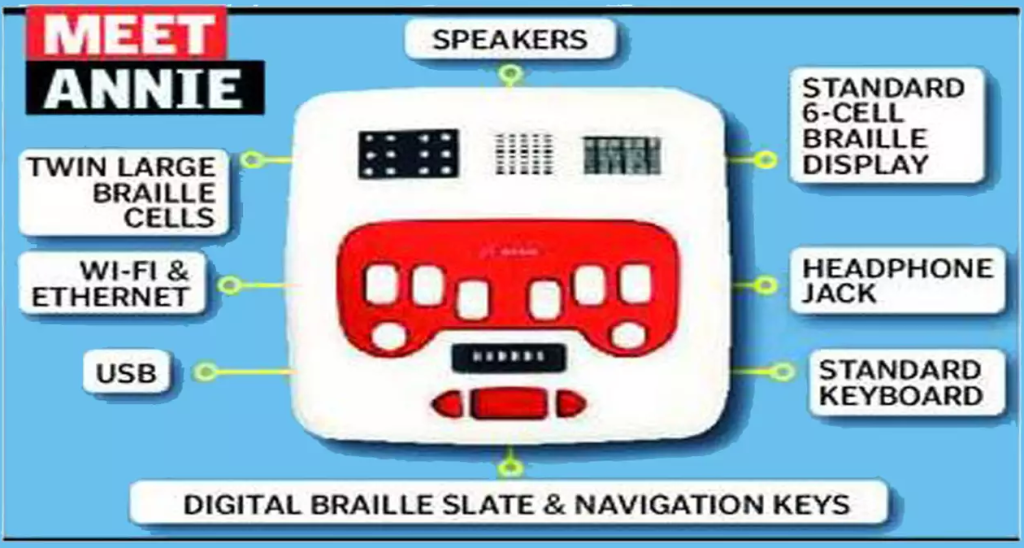
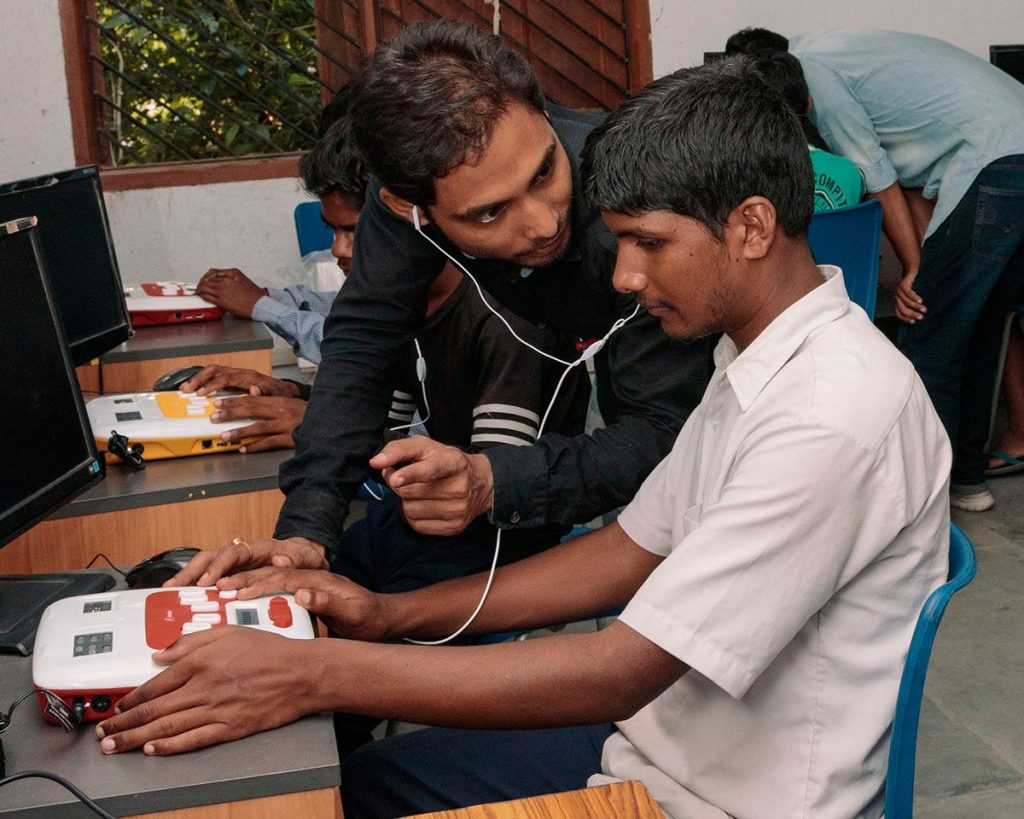
After this, we established India’s first Annie Smart Class (Braille Smart Class) in July 2018 at Rajyakrit Netrahin Madhya Vidyalaya, a blind school in Ranchi, Jharkhand. The Prime Minister of India praised this initiative. This was our first major deployment of the Annie learning ecosystem, which served as a test for our technology and the partnerships we believed would bring innovative education to those who could benefit from it 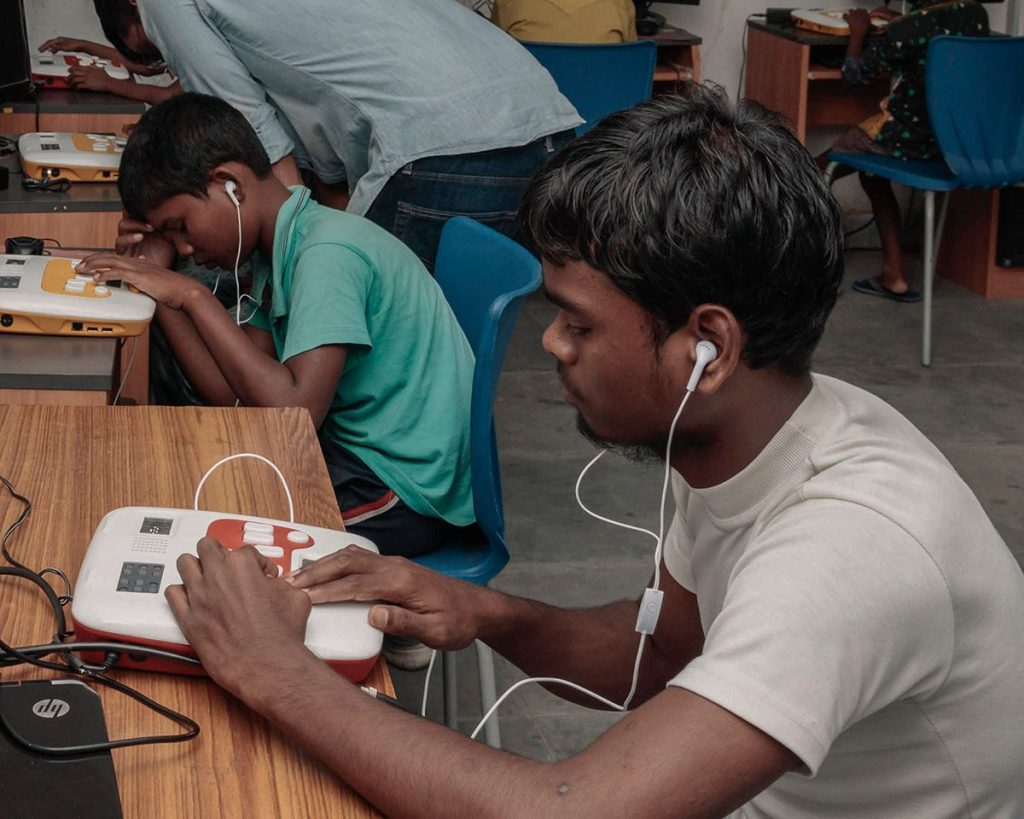 the most.
the most.
The Ranchi Annie Smart Class (ASC), was a tremendous success. The students and teachers were immediately impressed with the Annies, and the technological innovation has significantly impact Braille learning. Since then, we have set up several more such classrooms, and many of our product, logistical, and 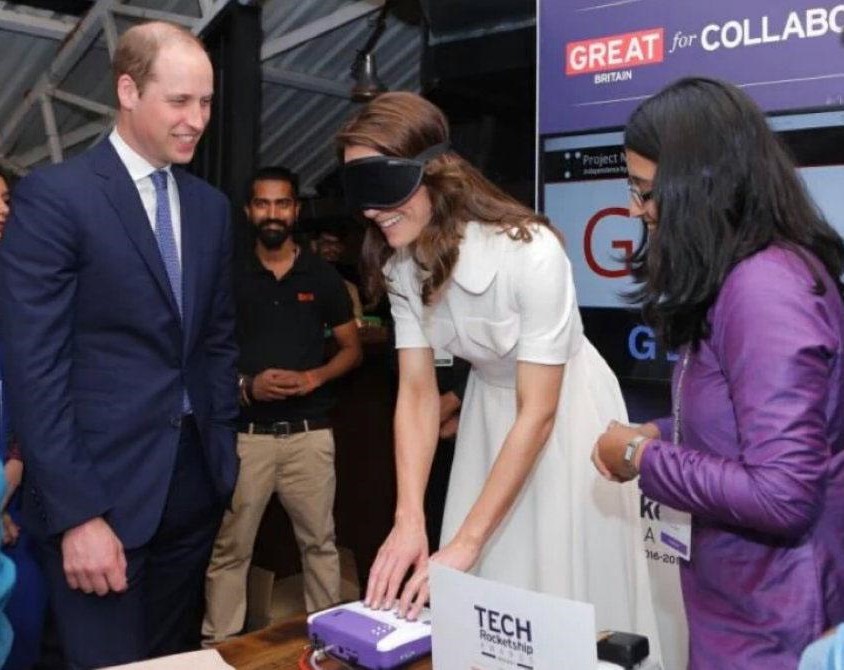 operational processes have been influenced by the lessons we learned there.
operational processes have been influenced by the lessons we learned there.
At an event, we had the opportunity to demonstrate Annie to the then Duke and Duchess of Cambridge (now the Prince and Princess of Wales). They were highly intrigued by the revolutionary idea. Anand Mahindra, who was present at the same event, was so impressed by the technology that he decided to invest in our invention.
Shark Tank India gave us a platform where we could make people aware of the pressing need for a product like Annie, which led to Namita Thapar, Peyush Bansal via Lenskart, and Anupam Mittal, granting us one of the biggest investments of Season 1 of the show. This visibility, coupled with recognitions from esteemed institutions such as the UNDP, TIME’s Best Inventions of 2022, and MIT Solve, attracted partnerships from prominent figures like Micron and the SBI Foundation, propelling Thinkerbell Labs to the forefront of the assistive technology landscape.
Annie is a comprehensive education solution that empowers learners of all abilities by offering Braille support with a display, keyboard, and the world’s first digital slate, facilitating reading, writing, and typing in Braille. With audio-guided lessons, engaging games, and culturally relevant content, Annie’s patented technology revolutionises Braille education by making it enjoyable and accessible to children. It is the first-ever Braille literacy device that teaches via gamification and interaction. Since this device addressed the critical challenge of low Braille literacy, our company began to gain significant traction, leading to partnerships with numerous government districts to deploy Annie for visually impaired students.
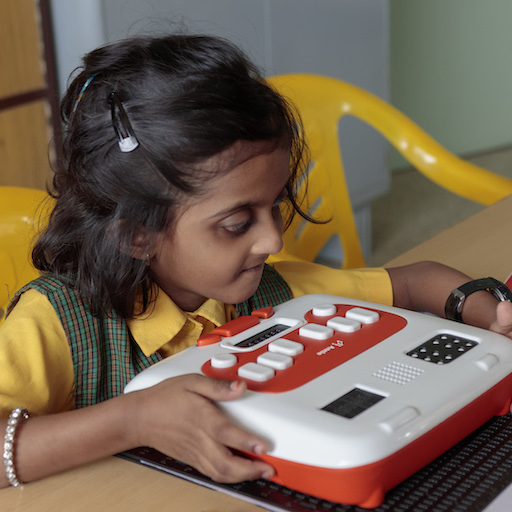
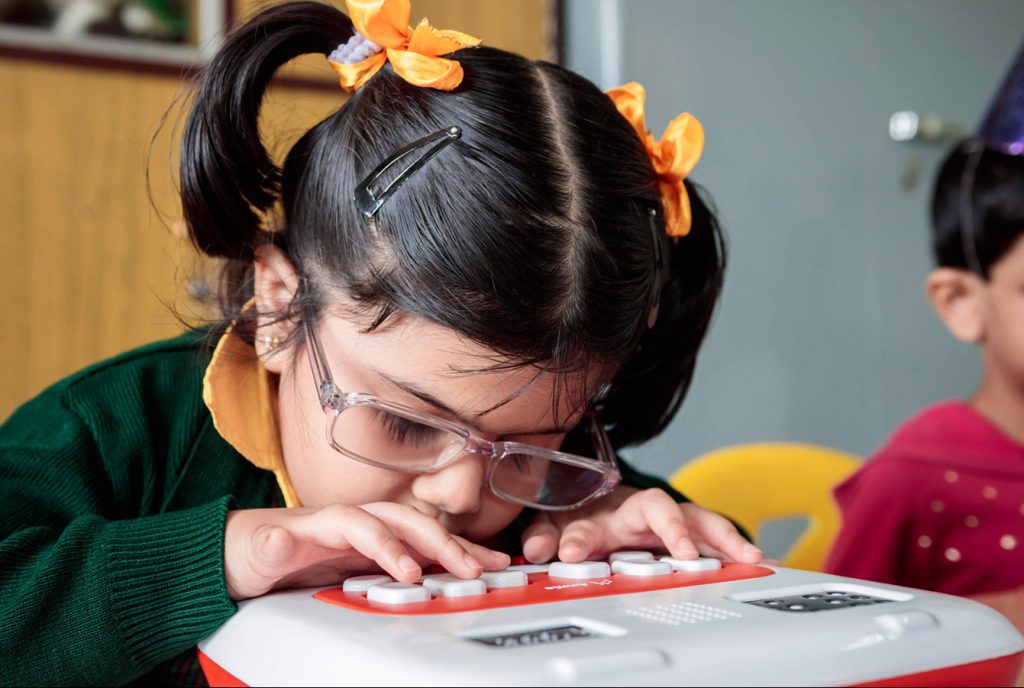
Leveraging a combination of innovative marketing strategies, including targeted outreach and participation in high-profile competitions, we gained widespread recognition. We further amplified this with an appearance on Shark Tank and a demonstration for the Prime Minister during Digital India Week 2022.
Shark Tank India gave us a platform where we could make people aware of the pressing need for a product like Annie, which led to Namita Thapar, Peyush Bansal via Lenskart, and Anupam Mittal, granting us one of the biggest investments of Season 1 of the show. This visibility, coupled with recognitions from esteemed institutions such as the UNDP, TIME’s Best Inventions of 2022, and MIT Solve, attracted partnerships from prominent figures like Micron and the SBI Foundation, propelling Thinkerbell Labs to the forefront of the assistive technology landscape.

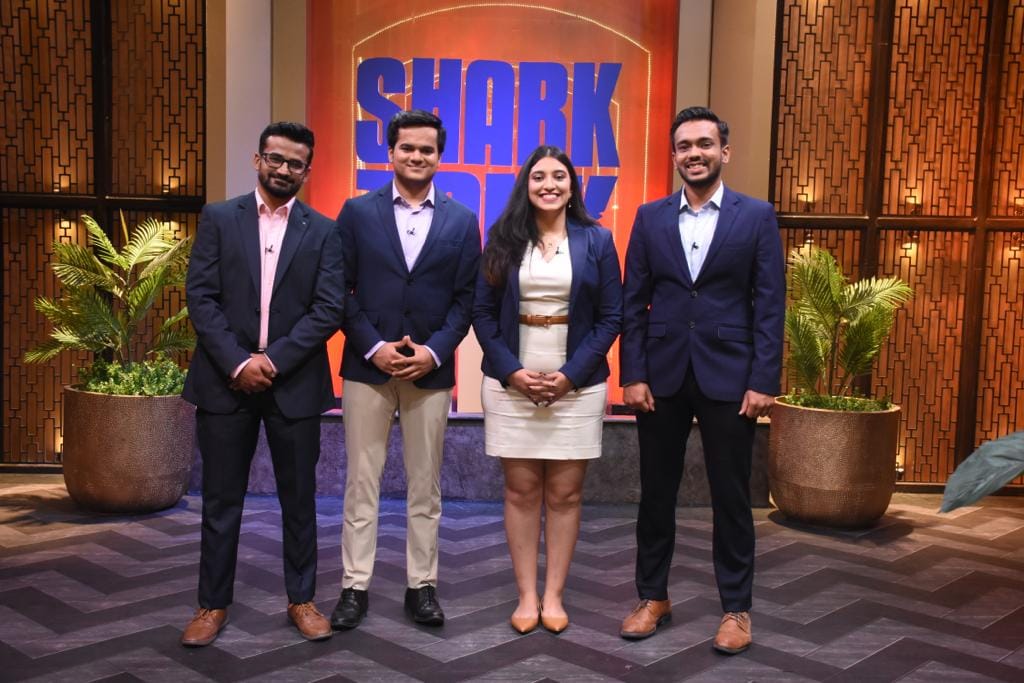
Annie’s endorsement by the American Printing House for the Blind (APH), a 166-year-old and the world’s largest organisation for the visually impaired, underscores its credibility and effectiveness. Thinkerbell Labs’ first international contract was signed with APH, which included a nationwide launch in the U.S.A. This partnership resulted in the remarkable success of Polly’s first batch, which sold out in less than ten days, reflecting the overwhelming demand for the product with anticipation of a threefold surge. Along with this, partnering with another leader in assistive technology, Humanware, facilitated Annie’s expansion into the UK, Ireland, Australia, and New Zealand. Our partnerships extend far and wide, encompassing collaborations with State and District governments across India, and various CSR and governmental entities. In addition to APH and Humanware, notable partners include the Abu Dhabi Early Childhood Authority, the Abu Dhabi Investment Office, Rotary International, Mitsubishi, Sensory Services, the SBI Foundation, GSR, Micron, Tech Mahindra, PowerGrid, General Motors, and Amazon, among others.
High-profile testimonials further validate Annie’s transformative impact. Prime Minister Modi, said, “In the district of Ranchi, the lives of visually impaired children are being improved with the Braille Smart Class.”
Rai Mahimapat Ray, Deputy Secretary at the IMF, Ministry of Finance, quoted, “Thanks to Thinkerbell Labs and the district innovation fund, it is a meaningful change in the lives of those that need it most,” lauding the collaboration and recognising it as a meaningful catalyst for change in the lives of those most in need.
Thinkerbell Labs has been experiencing exponential growth, especially in the last two years. It took us six years to establish 50 Annie Learning Centres in India, and now, given our rapid and exponential growth, we establish one new centre every six days. We are currently in 23 States with over 150 Annie Learning Centres nationwide, intending to reach all students with visual impairments across the globe. We contextualise our learning content according to the regions where Annie is deployed. Annie’s content, available in 15+ regional languages with ongoing development for more, emphasises teaching students in their mother tongue during foundational years, which yields better learning outcomes.
 Behind the scenes, Thinkerbell Labs is supported by visionary patrons and mentors. The founder of Tech Mahindra, Anand Mahindra, has been a great mentor throughout our journey, and his guidance has been instrumental in navigating the complexities of the startup landscape and scaling Thinkerbell Labs’ impact. Our patrons, including Micron and the SBI Foundation, supported us steadfastly throughout our journey. Additionally, Thinkerbell Labs received a multi-year grant from the GSR Foundation. This generous grant will enable us to extend our reach and make a meaningful difference in the lives of children brimming with potential.
Behind the scenes, Thinkerbell Labs is supported by visionary patrons and mentors. The founder of Tech Mahindra, Anand Mahindra, has been a great mentor throughout our journey, and his guidance has been instrumental in navigating the complexities of the startup landscape and scaling Thinkerbell Labs’ impact. Our patrons, including Micron and the SBI Foundation, supported us steadfastly throughout our journey. Additionally, Thinkerbell Labs received a multi-year grant from the GSR Foundation. This generous grant will enable us to extend our reach and make a meaningful difference in the lives of children brimming with potential.
Our product’s (Annie) impact on students is profound because we introduced a product that facilitates independent Braille learning among students. In a recent impact survey conducted across blind schools in Tamil Nadu, an overwhelming 86.7 per cent of teachers acknowledged Annie’s potential to bolster enrollment rates significantly.
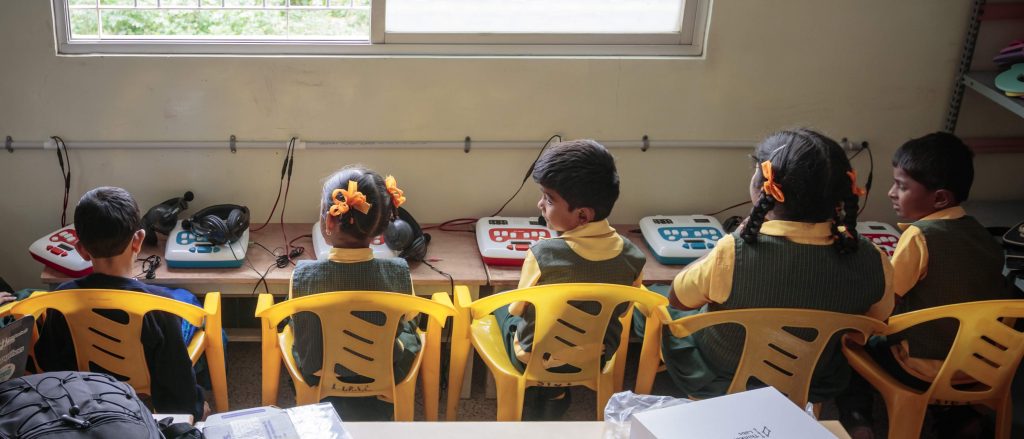
Thinkerbell Labs has been experiencing exponential growth, especially in the last two years. It took us six years to establish 50 Annie Learning Centres in India, and now, given our rapid and exponential growth, we establish one new centre every six days. We are currently in 23 States with over 150 Annie Learning Centres nationwide, intending to reach all students with visual impairments across the globe. We contextualise our learning content according to the regions where Annie is deployed. Annie’s content, available in 15+ regional languages with ongoing development for more, emphasises teaching students in their mother tongue during foundational years, which yields better learning outcomes.
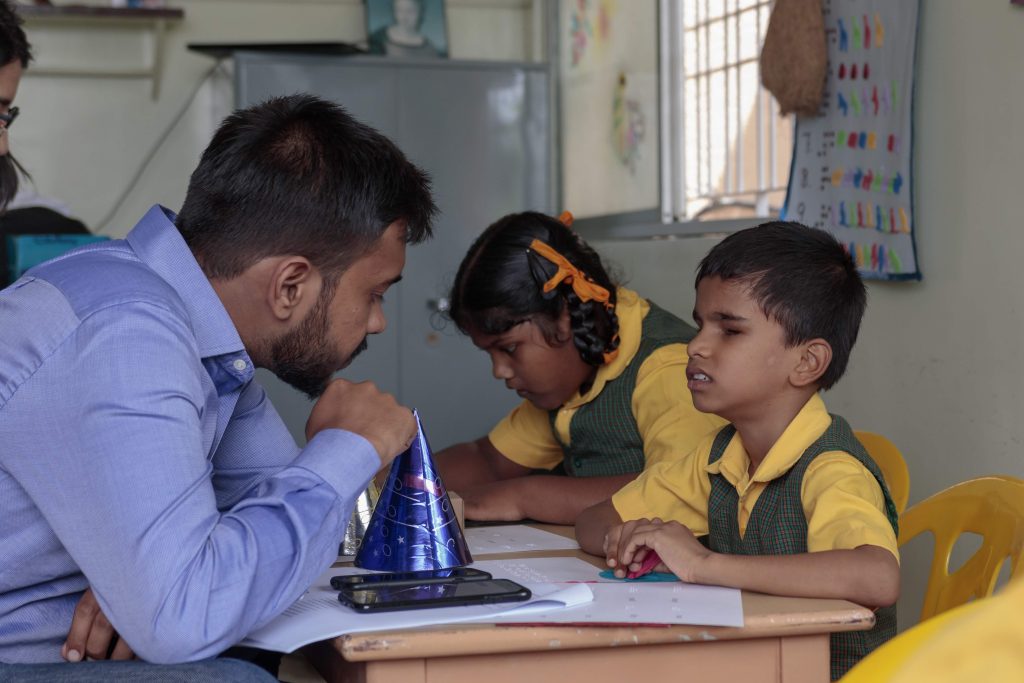
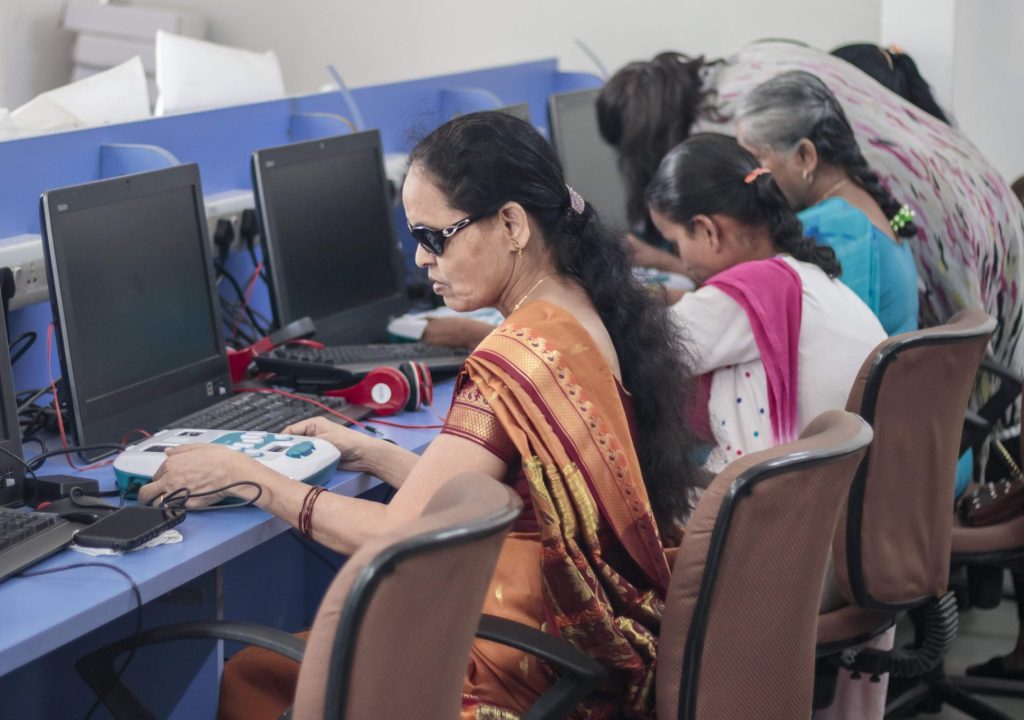
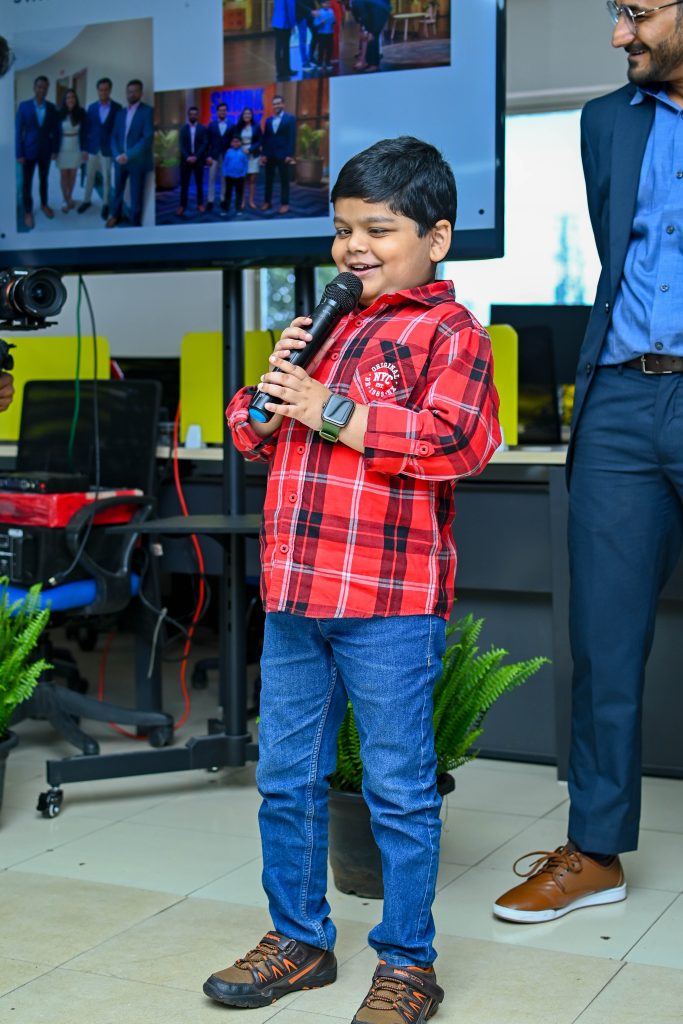
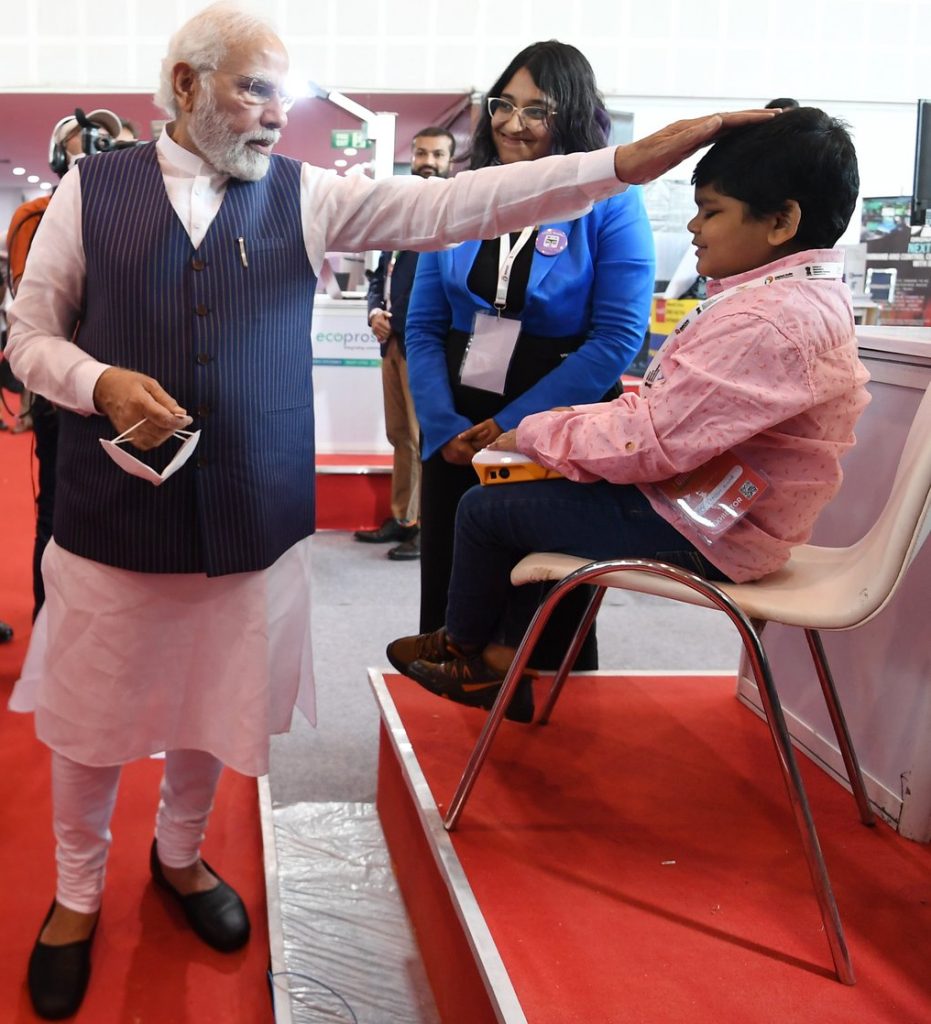
Prathamesh, our star student’s journey, is a testament to assistive technology’s transformative power. Once a learner of Annie, he now stands proudly as our 13-year-old brand ambassador. His journey with Annie led him to remarkable heights as he confidently demonstrated the device in front of Prime Minister Modi, earning commendation from the highest levels of leadership. Prathamesh has emerged as a beacon of inspiration, serving as a motivational speaker at events across India and captivating audiences with his resilience and determination.
At Thinkerbell Labs, we aim to empower every learner worldwide with literacy through Annie, bridging educational gaps and ensuring universal access to quality learning. We believe in a future where advanced assistive technologies like Annie make Braille literacy universally achievable, fostering complete accessibility and inclusivity in education. With unwavering dedication and a commitment to innovation, we are tirelessly working to make Braille education accessible to all, enabling visually impaired learners to access their full potential and paving the way for a more inclusive society.

